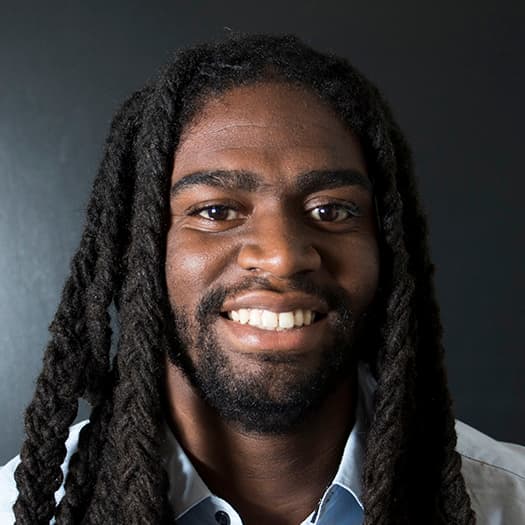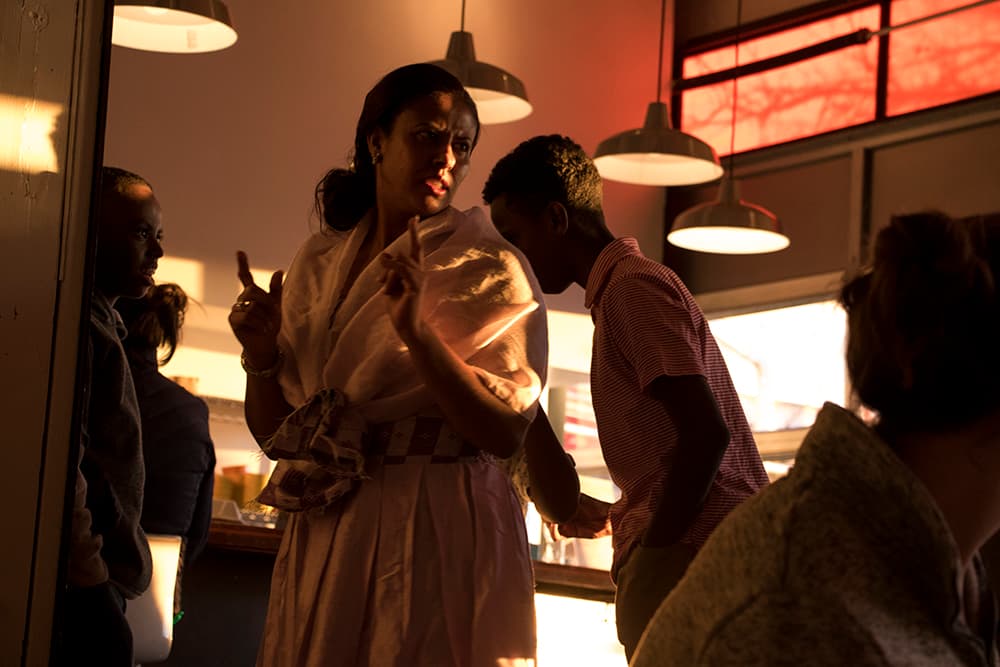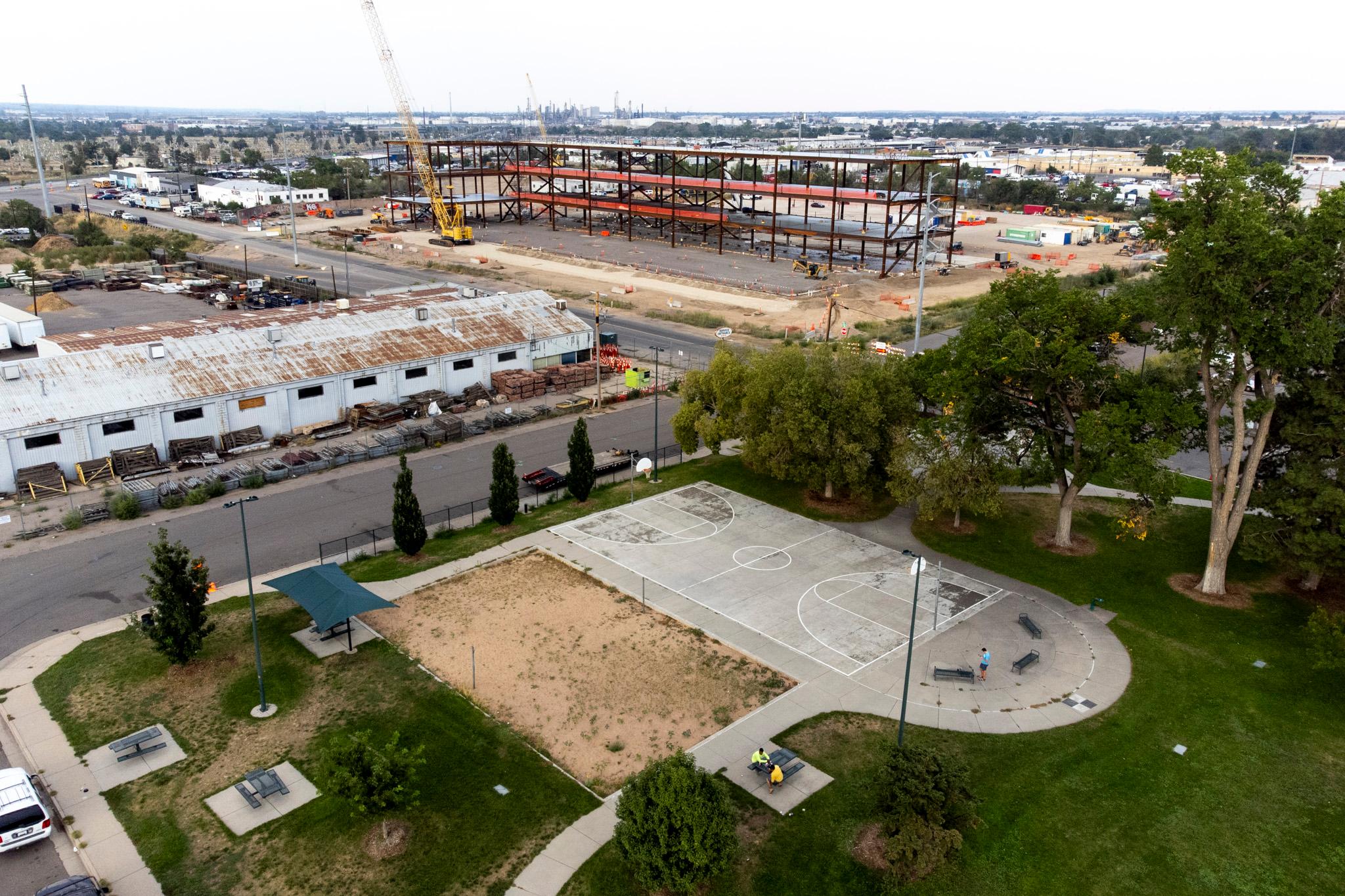A new prime minister, Abiy Ahmed, and a peace treaty between Eritrea and Ethiopia undoubtedly represent an era of change for those on the African continent. But it may also lead to reconciliation among some in one of the Denver metro area's largest immigrant communities.
The relationship between Eritrea and Ethiopia is a tumultuous one, with many grievances stemming from a decision that left Eritrea in the hands of Italy while the rest of Ethiopia remained uncolonized.
Denver is home to a healthy Ethiopian population, but that wasn’t the case when Millete Birhanemaskel, the owner of the Whittier Cafe, first arrived. She moved here in 1982. Back then, she can only recall a handful of Ethiopian families being around. Their population has exploded — in 2013, the Denver Post reported some 30,000 Ethiopians and Eritreans in the metro area.
She said that ties to home have sometimes led to strained relationships for the Ethiopian and Eritrean community in Denver.
“I've got into it with friends because there's conflict in the country along tribal lines. People were willing to say negative things about northerners because of their ideas about the government,” she said. She hails from the Tigray tribe, which is a minority tribe in the northern part of the country which held political power for the last quarter century.
Birhanemaskel said that Ethiopians take great pride in their ancestry, with a significant focus on their tribal background, and that while some Ethiopian tribes are slightly disproportionately represented in Denver, the city is home to many Ethiopians and Eritreans from each tribe.
“We have dozens of restaurants, the Ethiopian yellow pages, grocery stores, car lots,” Birhanemaskel said, laughing. “We’re in everything.”
In fact at one point, Denver's Ethiopian population included Ahmed, the new Ethiopian prime minister. The country's new new, young prime minister lived here, along with his wife and children, before he headed back to Ethiopia to pursue his political aspirations, according to Hussein Abdulahi, one of the founders of the United Colorado Ethiopian Dialogue Forum (UCEDF).
Abdulahi is originally from Ethiopia and is from the Oromo tribe, the majority tribe in the country. In 2016, well before Ahmed came to power, Abdulahi noticed how the tense political climate in the country was affecting Ethiopians abroad, sparked his ambition to help create UCEDF.
"This organization just started to bring together different churches, different organizations, and different communities. We came together and to see what our significant differences were and what are the commonalities we share,” said Abdulahi.
He feels that the new prime minister is helping to accelerate that process even from afar, thanks in part to his fresh take on inter-tribal relations.
“Even though he is from majority tribe of Oromo, he says ‘I'm representing all of Ethiopia. Let us come together,’” Abdulahi said.
"What’s different about him is he’s really charming he smiles a lot," Birhanemaskel said. "Leadership in Africa often don't smile and laugh a lot."
Birhanemaskel and Abdulahi both noted that the prime minister's ability to speak multiple languages may provide a sense of unity.
"[The tribes] have a lot in common, some of them share the language," Abdulahi said. "The political division and the political poison created between tribal identities was created by the politicians."
One show of this increased unity he’s witnessed recently in the area is the strong support for the prime minister's upcoming trip to the United States.
"Our prime minister is coming to visit us starting from next week. He’s coming to D.C., L.A. and Minnesota. We have a lot of Ethiopians coming together to celebrate him coming," Abdulahi said.
Birhanemaskel hopes that more harmonious aspect will continue to spread from the African continent — Eritrean president Isaias Afwerki just visited Ethiopia this week for the first time in 20 years — to the Denver area.
“Where I’m from in the north, we border Eritrea, we’re the same people; same food, same culture, same type of hairstyles,” said Birhanemaskel.
She hopes the changing relationship in Africa will change relationships here, too.
“It's exciting overall, the relationship with Eritrea I think is going to be so important. A woman came in, she was Eritrean, and something had happened to her car she was walking by and saw the jebena," Birhanemaskel said, referring to the clay tea pot that is synonymous with Ethiopian coffee culture.
"Then she came in and was like, 'Hey, we’re family, we should act like it.'"













